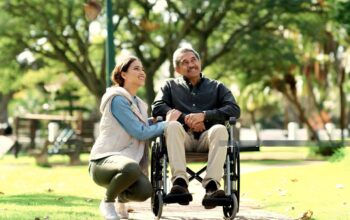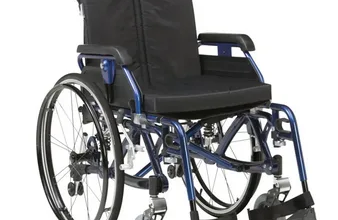Summer is almost here, and that means it’s time to get the kids outside. But summer isn’t just about playing outdoors – it’s also about keeping your kids safe. Here are some tips by the general practitioner of the Medical Clinic Near Mont Albert for making sure your children have a safe and enjoyable summer!
Playing outside together
Playing outside together is a great way to spend time together as a family, but it also brings with it some risks. Here are some tips for keeping your kids safe:
- Be aware of your surroundings. Kids should never run across the street or play in traffic. It’s also important to stay away from busy streets, parking lots, and places where cars may come into contact with the kids (i.e., an apartment complex courtyard).
- Be aware of water risks. Children should never swim alone, even if they seem like strong swimmers. Also, make sure you teach them how to float on their backs, so they won’t drown if they fall in the water while walking or playing near a pool or beach—or anywhere else that has bodies of water nearby!
- Be aware of sun safety precautions when spending long periods outdoors during the summer months (and remember that UV rays can reach over 20 feet higher than where you might think based on how bright it looks outside).
- Keep pets indoors when children are playing outside—and keep children away from feral cats or other animals that might bite them! If your pet has fleas or ticks on its fur, then these can spread disease easily if bites occur during playtime between pets/children.

Teaching your kids about water safety
Teach your kids about water safety
- Don’t swim alone. Kids should always swim with a buddy and never under the influence of alcohol.
- Don’t swim after drinking alcohol.
- Don’t swim in a pool that has not been treated with chlorine or some other disinfectant, such as bromine or iodine, that kills germs that cause illness and disease. If you don’t know whether the pool is properly chlorinated, ask management before entering it yourself or sending your child into it! If you are unsure what kind of chemicals are used at public pools, check their website before heading out; some offer this information on their site, while others may not even have an online presence at all (and thus no way to verify whether they’re using safe practices).
- Never allow children younger than 6 months old near any body of water without constant supervision by an adult–and even then, only if absolutely necessary! Why? Because babies’ immune systems aren’t developed enough yet so they can easily get sick from bacteria found in lakes/rivers/oceans or even oceans because there can be harmful microorganisms lurking around near shorelines, too, which could cause illnesses like hepatitis A virus infection so always keep an eye on little ones in areas where there may be increased risk factors for getting sick through contact with infected faeces (like when swimming).
Safe sunscreen practices
Sunscreen is a must for kids, but it’s important to follow these safe practices:
- Always apply sunscreen 30 minutes before going outside.
- Wear sunscreen every day. Apply 30 minutes before going outside and reapply every 2 hours when outdoors. It’s best to use a sunscreen with an SPF of at least 30 and broad-spectrum coverage that protects against both UVA and UVB rays. Check the label to see if your child’s sunscreen has met the rigorous standards set by the Food and Drug Administration (FDA). You can also look for products with the Skin Cancer Foundation Seal of Recommendation, which indicates that they have been tested by independent health experts who concluded that they provide effective sun protection without causing significant skin irritation or allergic reactions. Remember: The higher the SPF number on a label, the more protection you’ll get from burning UV rays—but only if you apply enough product!
- Apply enough sunscreen so that your child looks “shiny” or slightly wet after applying it (this may take about half an ounce). It’s important to not miss any spots where the skin is exposed like ears, noses, tops of feet and backs of knees as well as cheeks (which are often missed) so make sure there isn’t any sand stuck between toes or fingers after applying lotion either.
Keeping kids hydrated
When it comes to keeping your kids safe in the summer, one of the most important things you can do is make sure they’re drinking plenty of water. Kids need to stay hydrated all day long, no matter what they’re doing or where they are. For example:
- Before they play, when it’s time for a game of tag or a trip to the playground, make sure that your child has had enough water before heading out so that he or she doesn’t become dehydrated while playing in the heat.
- During and after playing. Once your child starts sweating during his activity, he will start losing fluids through sweat and respiration (breathing). Drinking plenty of water throughout these activities will prevent dehydration so that your kid doesn’t suffer from headaches, dizziness or other symptoms of dehydration—and those symptoms can get worse if left untreated!
- Before eating anything else besides water (yes!), if you want to ensure that everyone stays safe this summer as much as possible, then don’t forget about hydration–it’s important not just for kids but also for adults too! So even though there might be some temptation out there from ice cream cones or popsicles at birthday parties, don’t let this temptation ruin their health when all we want is happy families spending quality time together safely during these hot months ahead.”
Play it safe this summer.
Once you’ve set up your kids with a safe, fun and active summer, it’s time to play it safe.
- Be aware of the dangers of the sun. Learn how to apply sunscreen properly and make sure your kids know how to do so as well. Sunscreen should be worn every day with at least SPF 15 or higher, regardless of where you are or what you’re doing—even when it’s cloudy!
- Teach your children how to stay hydrated by drinking water throughout the day and before they start playing outside. Being hydrated helps cool down body temperature during hot temperatures, which can prevent overheating and heat exhaustion.
- Teach them how to play safely by teaching them not to run into traffic or jump on playground equipment without supervision; these are good skills that will help keep them safe all summer long!
Conclusion
Summer is a great time to get outside and enjoy the warm weather. The best way to keep your kids safe this summer, as per the doctor of the medical clinic in point cook, is by being aware of the potential risks and knowing what you can do about them. From supervising children when playing outside to teaching them about water safety, there are many ways that you can help prevent accidents from happening. You should also be aware of how much water or sugary drinks your kids drink each day, so they don’t become dehydrated during hot weather conditions.




